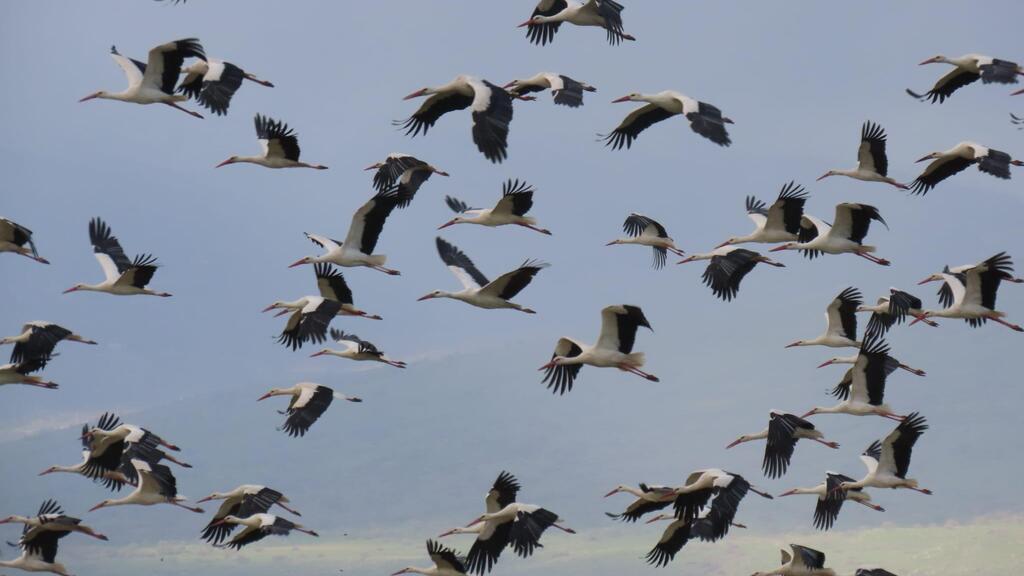Dr. Charter, who participated in the international study says 57% of bird species experienced a decrease in fledgling numbers, whereas small bird species, which generally remain in the same location, showed an increase
Ynet|05.23.23
Global warming is causing a decline in offspring of migratory and large bird species, according to a new international study, including collaboration with the University of Haifa and the Shamir Research Institute, published in the journal PNAS, Proceedings of the National Academy of Sciences.
However, the research also found that among non-migratory small bird species there was actually an increase in population.
“The concern is that the continued decline in population numbers will undoubtedly impact the long-term survival prospects of large migratory bird species, which play a significant role in preserving the global ecological balance,” said Dr. Motti Charter from the Department of Geography and Environmental Studies at the University of Haifa and the Shamir Research Institute, the Israeli partners in the international study.

Previous studies have examined the impact of climate change on the breeding timing, migration patterns, and abundance of birds. In the current study, Charter and other researchers from around the world sought to investigate the influence of global warming on the number of nests built by birds and the quantity of offspring produced.
To obtain significant data that could link climate change to changes in offspring numbers, the researchers requested the use of information collected over a continuous period of 15 years for a specific bird species.
“The number of researchers worldwide who have such long-term data for a specific bird population is not large, and hence the uniqueness of this study,” explained Charter. At the end of the process, data from 201 different populations of 104 bird species from all continents were collected, resulting in a total of 745,962 bird nests in the study.
The data pertains to the period between 1970 and 2019 and includes weather data during the breeding season, daily temperatures, egg numbers, fledging success (number of offspring who are able to fly successfully ), and the number of nests for each population separately.

The results of the study indicate that, due to global warming, approximately 57% of bird species experienced a decrease in fledgling numbers, while the remaining 43% actually showed an increase.
According to Charter, the data demonstrates the challenges and intricacies involved in understanding the effects of climate change and global warming. Specifically, it was found that the majority of species experiencing a decrease in fledgling numbers are large, migratory bird species, whereas small bird species, which generally remain in the same location, showed an increase.
“It is possible that smaller bird species have a preference for warmer weather. It is also possible that they have a faster ability to adapt to temperature changes. On the other hand, the impact on large, migratory birds is already evident in the current data,” according to Charter.
“Since large, migratory birds play a significant role in ecology, such as nutrient distribution, pest control, and maintaining biological balance, there is no doubt that their decline will have significant implications. If global warming continues in the coming years, the impact on large, migratory birds that move from region to region may worsen, and there may be specific species that face the extinction of entire populations and a disruption of the ecological framework,” he concluded.
https://www.ynetnews.com/environment/article/hkifs1qhn#autoplay
